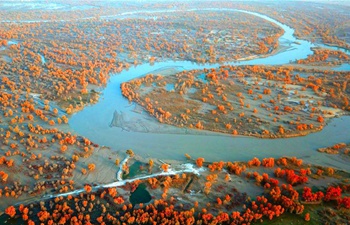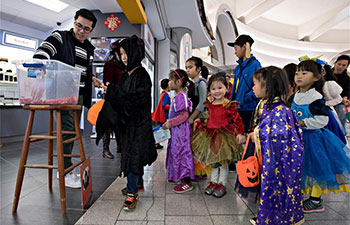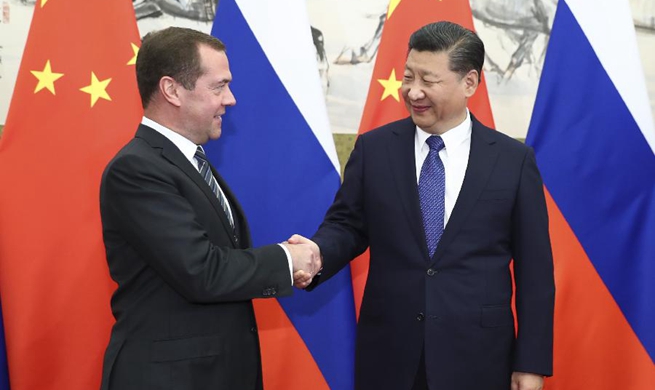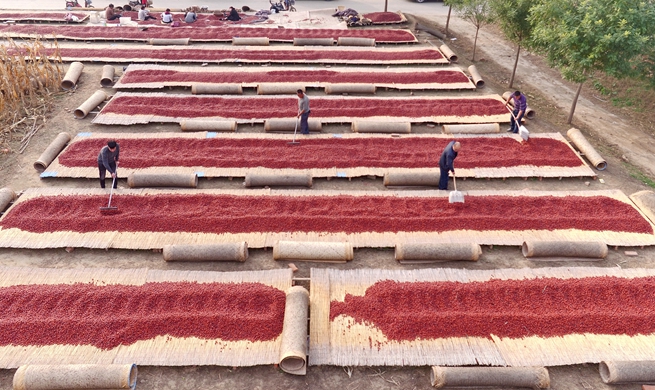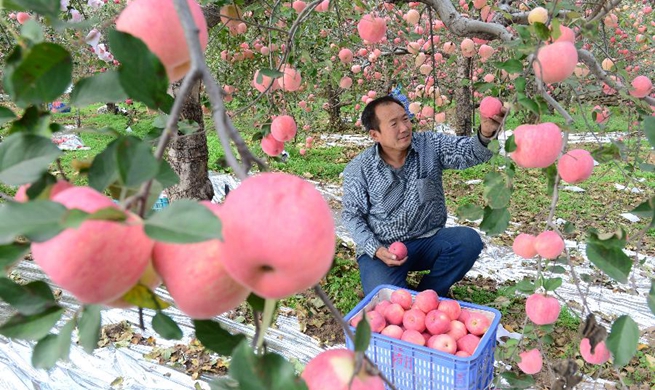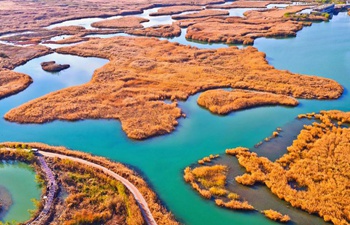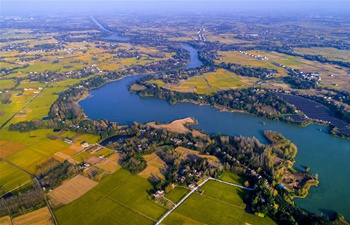UNITED NATIONS, Nov. 1 (Xinhua) -- Sustainability and inclusivity were the key words in building a global energy network, UN Secretary-General Antonio Guterres said here Wednesday.
Speaking at the opening of a high-level symposium here in New York, the UN chief said, "We want to make sure that we move into a situation in which energy becomes the key factor of stainability and obviously with a global interconnection effectively working we can produce energy where it can be done in a more friendly way to the environment and to the risk of climate change."
"When we discuss global interconnection in relation to energy we are at the centre of the two key words that express our global concerns - sustainability and inclusivity," the UN chief said.
The symposium, with the theme of "Building Global Energy Interconnection, Promoting the 2030 Agenda for Sustainable Development" , was co-hosted by the UN Department of Economic and Social Affairs (UNDESA) and the Global Energy Interconnection Development and Cooperation Organization (GEIDCO).
Modern energy services are integral to poverty reduction, food security, public health and quality education for all, he said, adding that they are the key to sustainable industrialization, healthier more efficient cities and successful climate action.
Despite this understanding, the UN chief said that the world is still far from achieving the vision of Sustainable Development Goal 7 of affordable and clean energy for all.
Some 1 billion people still live without any access to any electricity at all -- 500 million in Africa and more than 400 million in the Asia-Pacific region, and 3 billion people still cook and heat their homes without the benefit of clean fuels and more efficient technologies, he said.
Just a couple of weeks ago, a study by the Lancet Commission on pollution and health found that indoor and outdoor air pollution -- largely related to how we generate and use energy -- is the greatest environmental cause of disease and death in the world today.
In 2015, air pollution was responsible for an estimated 9 million premature deaths -- 92 percent of them in the developing world.
"So, the world needs more energy, and - in particular - more clean energy," Guterres said.
This need for clean energy is only going to grow as the world's population increases and global living standards rise, he said, adding that as well as a rising need for energy, the world is experiencing rising temperatures.
"There is still a significant gap between actions that have been pledged and what is needed to keep temperature rise to well below 2 degrees Celsius and as close as possible to 1.5 degrees," Guterres said, adding that "at the moment, we are on track for a temperature rise of 3 degrees or more."
"That would be catastrophic," the UN chief said.
The UN chief, who visited the Hurricane-ripped Antigua and Barbuda and Dominica less than a month ago, said that the frequency and severity of extreme weather events highlights the changes to our climate and the risk to vulnerable communities of a vicious cycle of loss and damage and recovery.
Promoting modern technologies than can fulfil energy needs without polluting the environment and pumping greenhouse gases into the atmosphere, he said.
"Increasing investments in energy efficiency, clean energy and renewable energy and global interconnection is at the centre of these concerns, Guterres said.
With smart grids it is now feasible to generate, transmit and distribute power efficiently, cutting transmission losses and providing clean, affordable, economically viable and environmentally sound energy services, he said.
Guterres urged all governments and all stakeholders around the world to step up efforts to transform the world's energy systems for the benefit of all.





